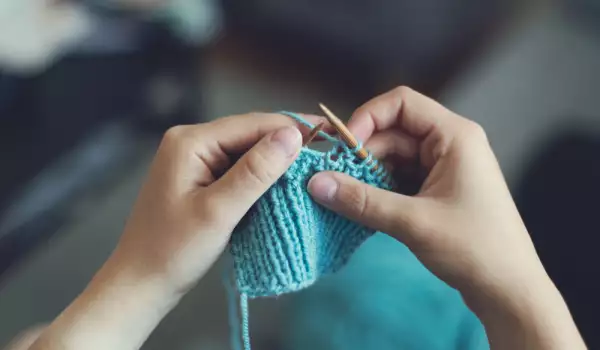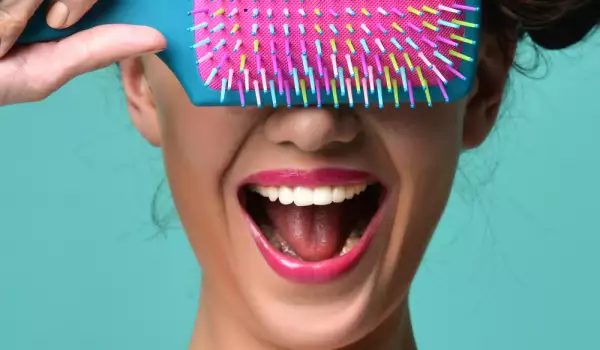Creativity is a skill that takes time, practice and effort to develop. There are many areas you can focus on to enhance your overall creativity. Also, in order to develop your creativity, you will have to change your lifestyle. We will give you some guidelines:
How to be creative
Challenge yourself with creative exercises
For example, do the 30 circle test. First draw 30 circles. Then make as many drawings of these circles as you can in one minute. The test can be done over and over again, each time trying to beat your record. This exercise will help you stimulate quick and creative thinking. It encourages creativity, because it forces you to think in several directions at the same time. Many people tend to correct themselves and stop considering whether to spend time on this or that idea. The 30 circle test makes one think faster and experiment with ideas without rejecting them.
Doodle in your spare time

Doodling is often thought of as childish activity, but it actually helps increase work ability. This process enhances creativity, by improving your interaction with the world and increasing your focus. Doodling helps you stay interested in activities that would otherwise distract you. Draw if you feel your mind start to wander. For example, if you find yourself losing focus during a work meeting, start drawing something on paper. You can also do this while studying during boring lectures.
Write short prose - no more than 100 words
Writing will help you become more creative as you will be forced to tell a story with a beginning, middle and end using only a small number of words. This will help you learn how to convey the necessary information in a concise manner.
Listen to music
Just turn on the background music - it will help you wake up your inspiration. Music helps you focus better and increases concentration in general. Classical music is especially good for creativity and concentration. There are no universal genres of music that have the same effect on everyone. Experiment a little to find the perfect sound that will help you focus and feel creatively inspired.
Do something with your hands

When you create with your hands, you receive information from all your senses. This helps stimulate more creative thinking. For example, try knitting, sewing, or other types of needlework to boost your creativity.
Play video games
Some video games are really good for developing a creative mind. Interactive games that require movement, stimulate multiple senses at the same time, support creative thinking. Avoid games that require you to sit still for long periods of time.
Read books
Reading is great for developing creativity. Make it a habit to read regularly. Choose books from different genres and styles to expand your horizons and really boost your creativity. Try to make time for reading every day. Enroll in a library so you don't have to spend money on books.
Expand your knowledge
Improve your knowledge. Part of creativity is becoming an expert in a field and learning as much as you can about it. Start by reading articles and watching videos on a specific topic to gather more information. If possible, sign up for an introductory course at a local educational institution or recreation center (for example, take a beginner's art course). Get inspired by studying other people's work in a field that interests you. For example, if you are learning to paint, visit a museum or art gallery.
Be open to new experiences

The most creative people are willing to tackle multiple ideas at once, expand their horizons and to be surprised. Don't resist or reject things that are unfamiliar to you and take advantage of opportunities to try new creative endeavors. For example, try modeling clay, even if you don't think you'll like it or fail.
Use games to develop creativity
Activities for children will help your creative side, temporarily free you from adult problems and allow you to think big. Use toys and art objects to stimulate your imagination and make new connections. If you're short on creative ideas, take some time to draw a whimsical picture or build something out of Lego.
Share your knowledge and explain it
They say that you remember 90% of what you learn, by teaching it to someone else. By retelling the newly acquired knowledge to yourself and others, you can fix them in your memory. When you learn something new, make it a rule to explain it to yourself mentally. If you're feeling particularly confident, make a video based on your knowledge to post online or explain it to a friend or colleague.
Try to come up with new ideas

Engage in activities that will actively challenge you to come up with new ideas. For example, play word association by writing down one word and then all the other words that are associated with it. Use an analogy to find similarities between two seemingly different things so you can dig deeper and explore your associations with each.
Take time to brainstorm
Creativity takes practice, so take time each day to retreat to a quiet or inspiring place and generate new ideas. For example, visit a quiet park or sit in the library and let your thoughts flow freely. Write down all your ideas (whether good or bad) in a notebook, tablet or computer. Keep editing or rethinking them.
Change your lifestyle

Talk to different people. To boost your creativity, socialize as much as possible, especially with people who are not like you. Spend time with those whose life experiences and worldviews are different from yours and then you can expand your horizons and look at everyday things with fresh eyes.
Walk whenever possible
Walking will give you time to think about your ideas, allowing you to abstract and immerse yourself in creative thoughts. You will also have the opportunity to come into contact with a new environment or nature, which can inspire you creatively.
Do sports
Regular exercise stimulates creativity, by reducing stress and improving cognitive function. Plan your workouts, allocating about 30 minutes a day to them. Choose light cardio exercises such as walking, jogging or cycling.
Get some sleep
Sleep keeps the mind fresh and rested, which stimulates creativity. The brain is also very active during sleep, so if you "go to sleep with a problem, " you allow the mind to reassess connections and formulate new ideas about the problem. Try to sleep at least 8-9 hours every night and do not break the routine.












